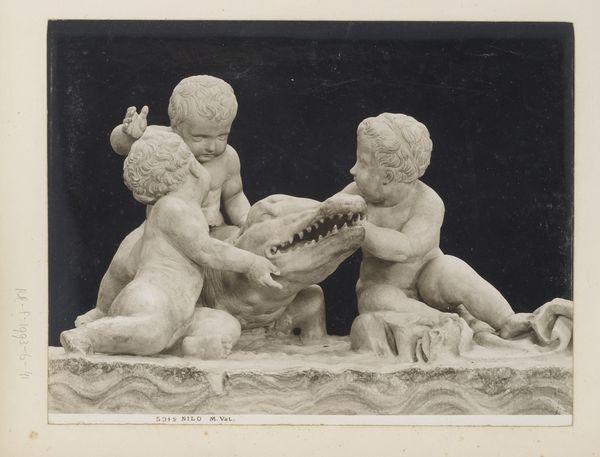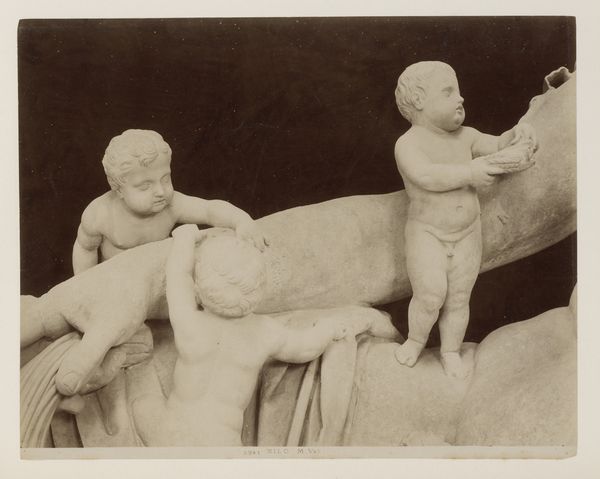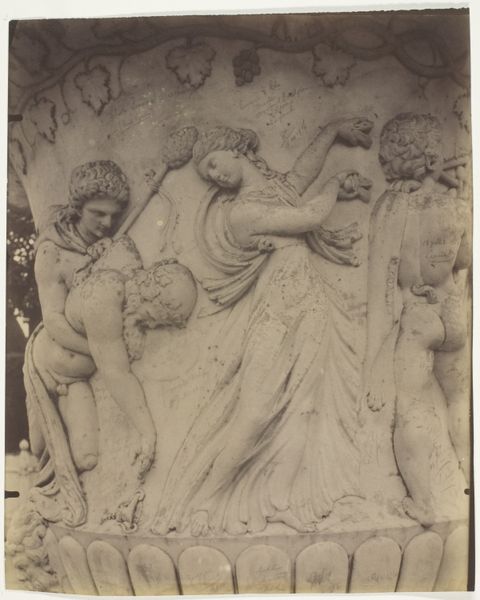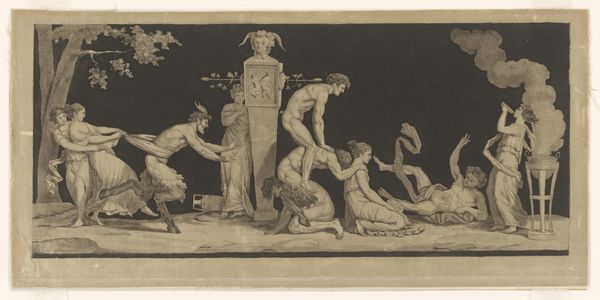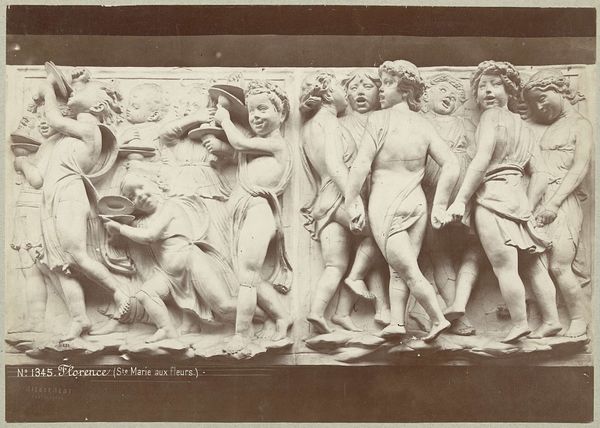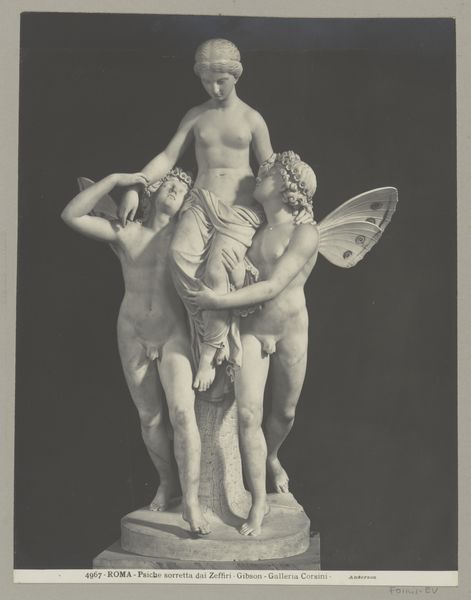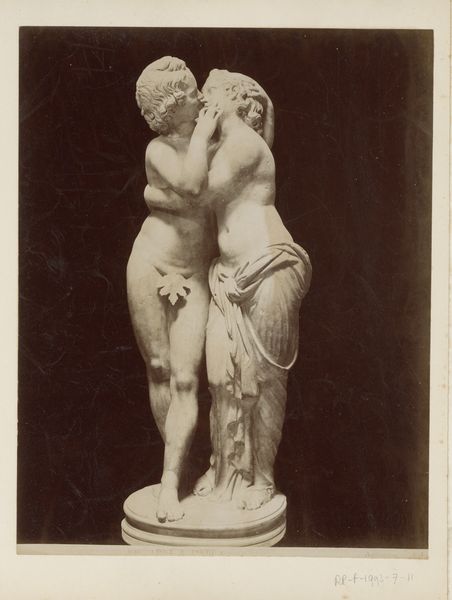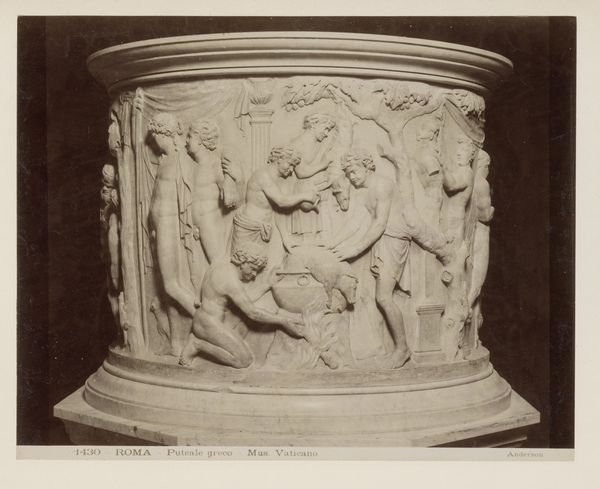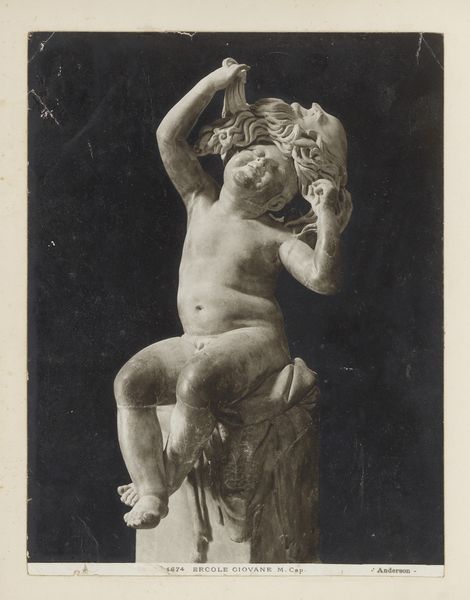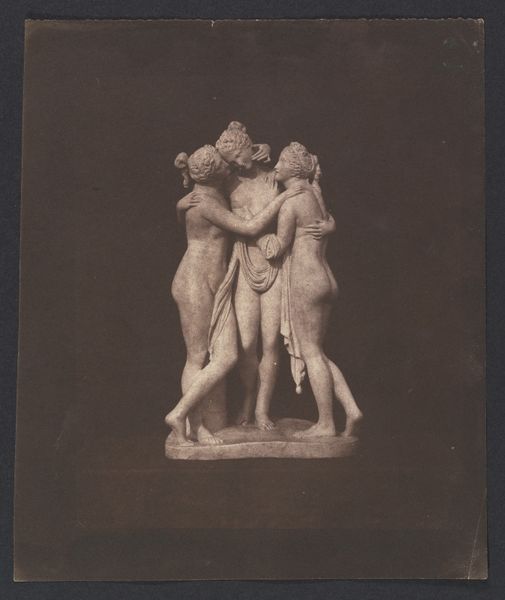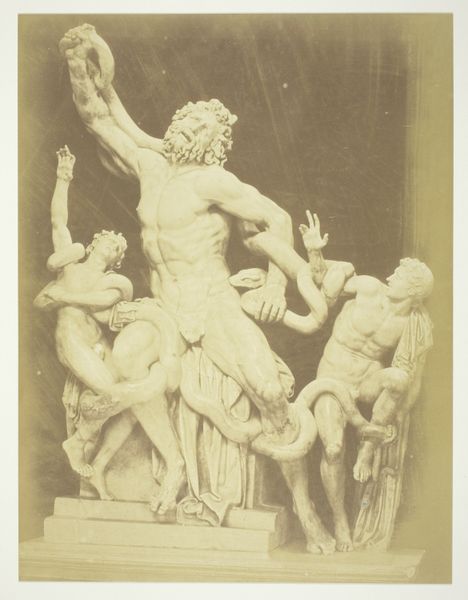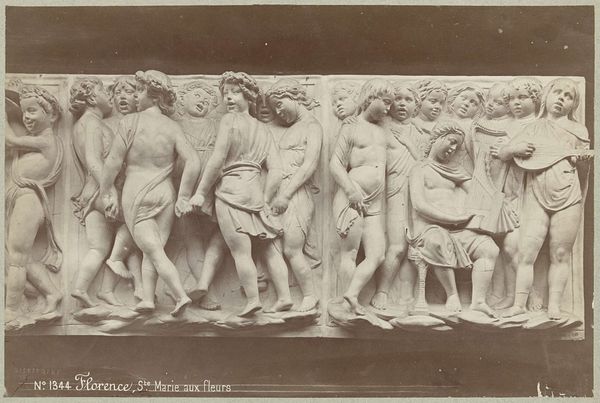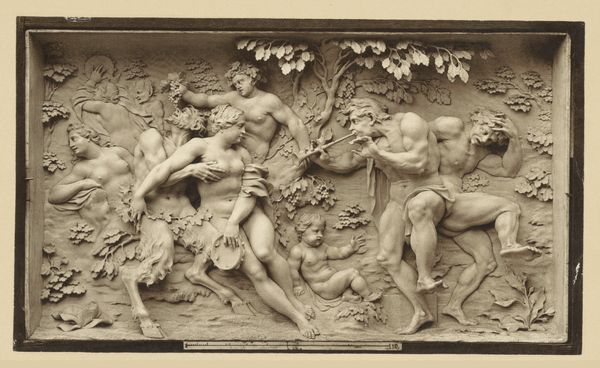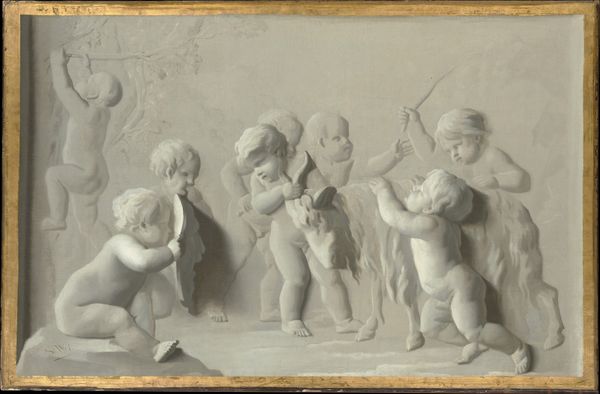
photography, sculpture, marble
#
classical-realism
#
figuration
#
photography
#
ancient-mediterranean
#
sculpture
#
marble
#
nude
Dimensions: height 205 mm, width 260 mm
Copyright: Rijks Museum: Open Domain
Editor: So, this is a photograph of "Detail van sculptuur De Nijl, Vaticaan" by James Anderson, taken sometime between 1857 and 1875. It’s currently housed in the Rijksmuseum. What strikes me immediately is the tactile quality conveyed through the marble, despite being captured in a photograph. How would you approach interpreting this piece? Curator: I’m immediately drawn to the labor involved. Think about the quarrying of the marble, the transportation, the sculptor’s hand shaping it, and then the photographer documenting it. All those processes and hands contributing to what we are seeing here, bridging ancient ideas with modern (for the time) means of representation. Where do you see this labor reflected within the image? Editor: I suppose I see it in the sheer amount of detail in the folds of the drapery, the muscles of the figures... the meticulous realism. Curator: Exactly. Now consider who had access to this kind of meticulous craftsmanship, both in its creation and its eventual consumption through photography. The materiality speaks of power and wealth. What’s the social implication of making this sculpture reproducible through photography, distributing its image more widely? Editor: It seems like a way of democratizing art, maybe? But, wouldn't it still primarily be consumed by those with disposable income who can afford to purchase prints? Curator: A very good point. And, thinking about consumption, consider also the societal hunger for images—what desires were being catered to by circulating this image of antiquity, reproduced by modern industrial methods? Editor: So, it’s not just the beauty, but also the whole system that created the artwork and allowed for its distribution? It gives a new layer to consider. Curator: Precisely. Thinking about art this way encourages us to consider its social role and its place within broader material realities.
Comments
No comments
Be the first to comment and join the conversation on the ultimate creative platform.
